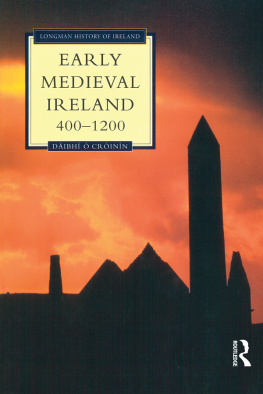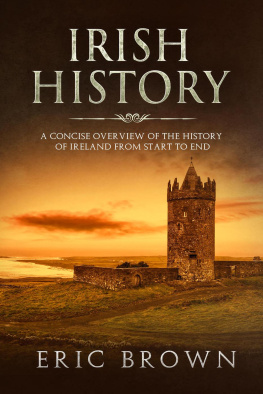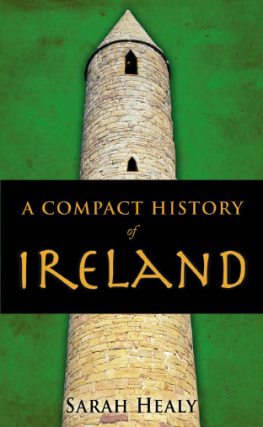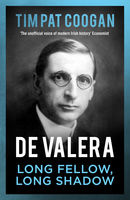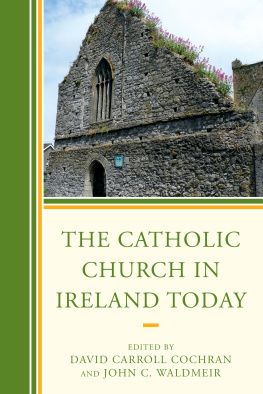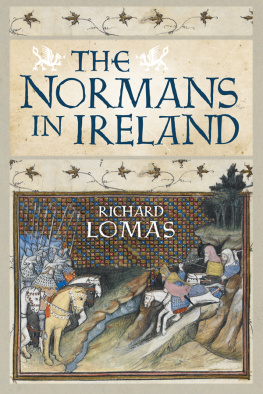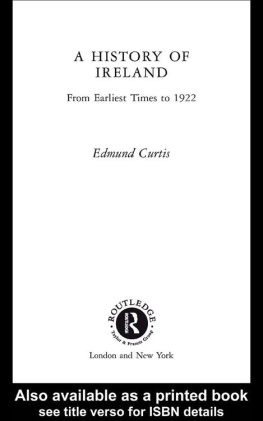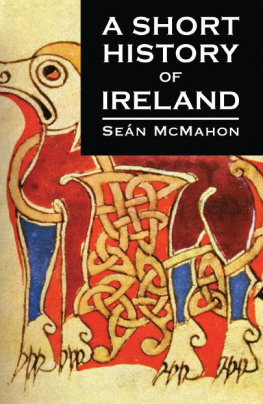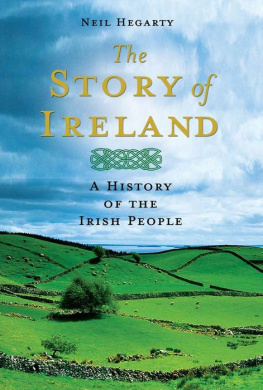E ARLY M EDIEVAL I RELAND
LONGMAN HISTORY OF IRELAND
General Editor: Steven G. Ellis
An analytical account of Ireland from early Christian times to the present, the six volumes of this new series are being written by a team of leading historians in Ireland, Britain and America. The volumes (each substantial enough to make a significant contribution to scholarship without becoming unwieldy for the non-specialist) will tackle a common central agenda, including politics, religion, society, the economy and government. The series will be the obvious starting point for anyone scholar, student or general reader wanting an authoritative but accessible introduction to Irish history.
The first volume to be published in the series is:
EARLY MEDIEVAL IRELAND 4001200
DIBH CRINN
EARLY MEDIEVAL IRELAND
4001200

DIBH CRINN

First published 1995 by Pearson Education Limited
Published 2013 by Routledge
2 Park Square, Milton Park, Abingdon, Oxon OX14 4RN
711 Third Avenue, New York, NY 10017, USA
Routledge is an imprint of the Taylor & Francis Group, an informa business
Copyright 1995, Taylor & Francis.
All rights reserved. No part of this book may be reprinted or reproduced or utilised in any form or by any electronic, mechanical, or other means, now known or hereafter invented, including photocopying and recording, or in any information storage or retrieval system, without permission in writing from the publishers.
Notices
Knowledge and best practice in this field are constantly changing. As new research and experience broaden our understanding, changes in research methods, professional practices, or medical treatment may become necessary.
Practitioners and researchers must always rely on their own experience and knowledge in evaluating and using any information, methods, compounds, or experiments described herein. In using such information or methods they should be mindful of their own safety and the safety of others, including parties for whom they have a professional responsibility.
To the fullest extent of the law, neither the Publisher nor the authors, contributors, or editors, assume any liability for any injury and/or damage to persons or property as a matter of products liability, negligence or otherwise, or from any use or operation of any methods, products, instructions, or ideas contained in the material herein.
ISBN 13: 9780-582015654 (pbk)
British Library Cataloguing-in-Publication Data
A catalogue record for this book is available from the British Library
Library of Congress Cataloging-in-Publication Data
Crinn, Dibh.
Early medieval Ireland, c. AD400AD1200
p. cm. (Longman history of Ireland)
Includes bibliographical references (p.) and index.
ISBN 0582015669 (cased). ISBN 0582015650 (paper)
1. Ireland-History-To 1172. I. Series.
DA930.02 1995
Set by 7 in 10/13pt ITC Garamond Light
CONTENTS
We are grateful to the following for permission to reproduce copyright material: the Royal Irish Academy for the translation by Calvert Watkins of an early Irish verse which appeared in Varia III/Calvert Watkins (riu, xxix, 1978); Colin Smythe Limited, Publishers for extracts from three (translated) poems which appeared in Medieval Irish lyrics by James Carney (The Dolmen Press, 1967); the Governing Board of the School of Celtic Studies of the Dublin Institute for Advanced Studies for translated material from the following works Thesaurus palaeohibernicus by W. Stokes and J. Strachan, Dicuili Liber de mensura orbis terrae by J. J. Tierney, and Old Irish reader by R. Thurneysen.
AA | [MGH] Auctores Antiquissimi. |
AFM | Annals of the Four Masters, John ODonovan (ed.), AnnalaRioghachta Eireann: Annals of the Kingdom of Ireland by theFour Masters (7 vols Dublin, 1856). |
ALI | Ancient laws of Ireland (6 vols, Dublin, 18651901). |
AU | Sen Mac Airt and Gearid Mac Niocaill (eds), The Annals of Ulster (to AD 1131) (Dublin, 1983). |
CCCM | Corpus Christianorum, Continuatio Medievalis. |
CCF | Cic Conairi Fuigill (The Five Paths of Judgement) |
CCSL | Corpus Christianorum, Series Latina. |
CMCS | Cambridge [Cambrian] Medieval Celtic Studies. |
CNRS | Centre National de la Recherche Scientifique. |
DIL | Dictionary of the Irish Language. |
HE | Historia Ecclesiastica (usually Bedes). |
IER | Irish Ecclesiastical Review. |
JRSAI | Journal of the Royal Society of Antiquaries of Ireland (1848 ). |
LH | Gregory of Tours, Libri Historiarum. |
MGH | Monumenta Germaniae Historica. |
MPL | Jacques-Paul Migne (ed.), Patrologiae cursus completus, serieslatina. |
NHI | T.W. Moody, F.X. Martin and F.J. Byrne (eds), A new historyof Ireland (10 vols, Oxford 1976 ). |
OE | Old English. |
OI | Old Irish. |
ON | Old Norse. |
OW | Old Welsh. |
PLAC | [MGH] Poetae Latini Aevi Carolini. |
PRIA | Proceedings of the Royal Irish Academy. |
RIA | Royal Irish Academy. |
SRM | [MGH] Scriptores Rerum Merovingicarum. |
Trans | Transactions. |
ZCP | Zeitschrift fr celtische Philologie (1898 ). |
R eaders of Sellar and Yeatmans classic 1066 and all that will know about The Irish Question and King Johns attempt to solve it by pulling the beards of the aged Irish chiefs, which was a Bad Thing and the wrong answer. This book tries to make good the neglect of Irish history which is thus gently lampooned, offering a different perspective on Britains nearest neighbour. Most general readers will be vaguely familiar only with the Irishmen mentioned in Bedes Ecclesiastical History of the English Nation, with Charles Stewart Parnell perhaps, or with Eamon de Valera, though most will admit that the island of Ireland existed during the First World War, and even during the Second World War (which citizens of the Republic called The Emergency). For the most part, Englands involvement in Irish affairs has been seen in Irish eyes, at least as baneful and destructive, a verdict echoed by some commentators on the other side of the Irish Sea. Thus, William of Canterbury, writing in the twelfth century, mentions a certain Theobald, who was wounded in the Irish wars, and it served him right (said William), or so those thought who saw no reason for the disquieting of a neighbouring nation, who, however uncivilised and barbarous, were remarkable and noteworthy practisers of the Christian religion.
Next page
